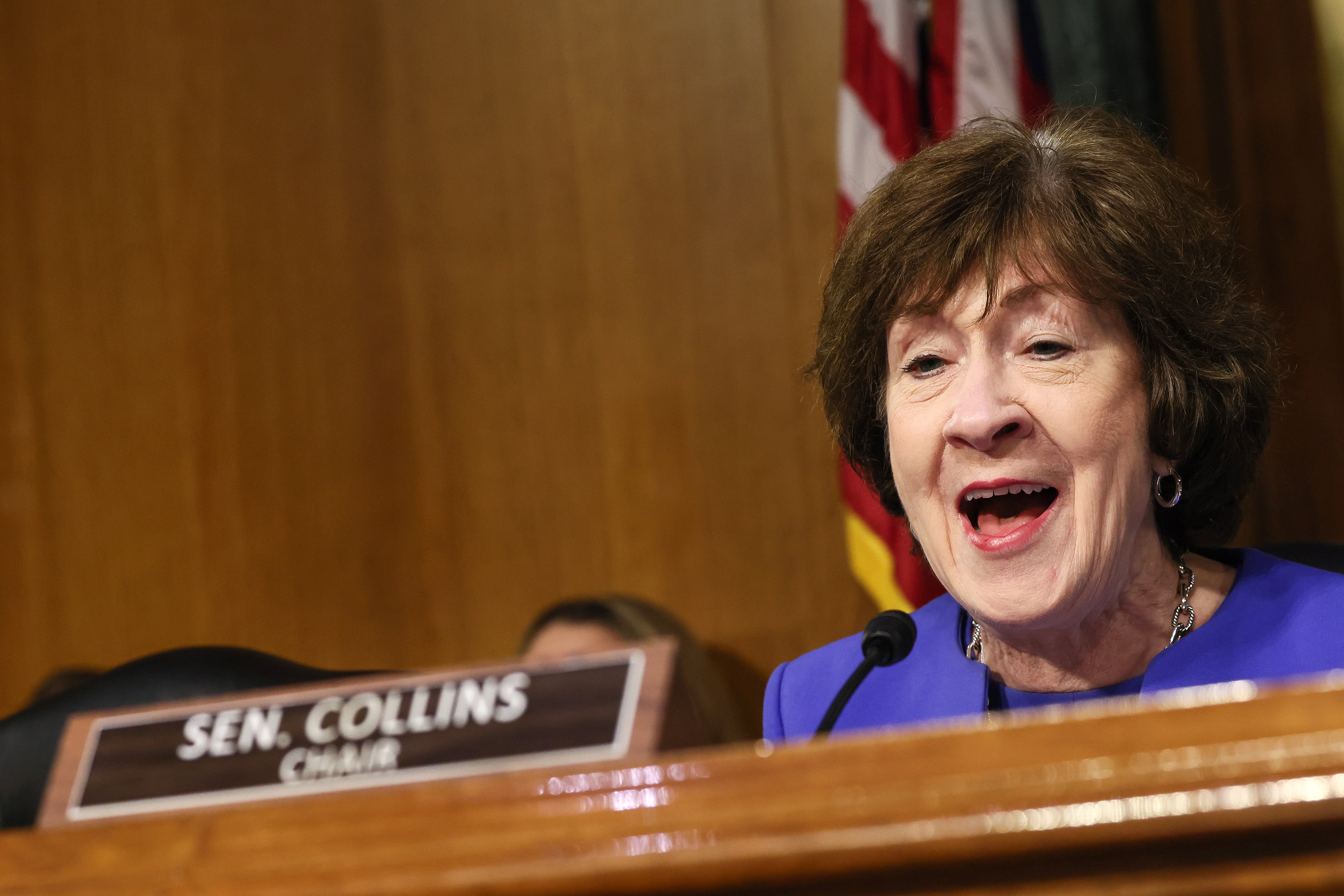Senate Democrats have a chance to beat Sen. Susan Collins in Maine. She’s the last Republican senator from New England and the only Republican who represents a traditionally Democratic state. She is also hated by some in her own party, who accuse her of not being far enough to the right.
While often marked as a “vulnerable” seat in D.C. circles, Collins appears to be safe yet again as the race for her seat in 2026 ratchets up - no major candidate for either party has announced they would run against her.
Democrats have no other way to win the majority in the Senate in 2026 without beating Collins. To win the majority, they would need to flip three other Senate seats. They have already targeted North Carolina after Republican Sen. Thom Tillis announced he would not seek re-election. They still need three more.
And Collins is their best shot. A Morning Consult poll showed that Collins’s approval rating in Maine slid dramatically by 12 percentage points to the point that 51 percent of Mainers disapprove of her.

But Democrats might be gun-shy about challenging Collins because of the results. In 2020, Democrats were certain they could beat Collins after she voted to confirm Brett Kavanaugh to the Supreme Court and largely voted with President Donald Trump’s agenda.
Sara Gideon, Collins’s Democratic challenger, raised millions of dollars and polls showed that Collins was vulnerable, only for Collins to win in 2020 by more than nine points despite the fact Joe Biden won the state by about the same amount.
“While the polling is out there and people are aware of it, I think there's a strong reluctance in many circles, primarily because of past history causes traditionally proved polling wrong,” Adam Cote, a former Democratic candidate for governor of Maine, told The Independent. “I think it's probably the Gideon race, not only because it's the most recent and on people's mind, but it's the most instructive as to whether a poll makes a big difference or not.”
Collins also knows when to break with her party when she sees necessary. Last week, when the Senate voted on President Donald Trump’s “One Big, Beautiful Bill,” Collins opposed it because of the cuts to Medicaid, even as she secured money for rural hospitals. Most notably, Collins also voted to convict Trump for his actions on January 6 and is one of only three Republicans still in the Senate who did.
That might explain why a recent University of New Hampshire poll showed 29 percent of Republicans have an unfavorable view of Collins and 57 percent of Mainers in general have an unfavorable view of her.

But Collins also now holds more power than she’s had in her career as the chairwoman of the Senate Appropriations Committee, which writes the budget.
“My intention is to run for reelection,” Collins said in a statement to The Independent. “I am now the Chair of the Senate Appropriations Committee, which is considered to be one of the most powerful positions in the Senate. By climbing that ladder, in the last three years, I have been able to secure more than a billion dollars for hundreds of projects in communities across our state, and that would not have happened without the seniority that I have.”
Those factors might have scared away potential Democratic challengers. Rep. Jared Golden, a Democrat who previously worked for Collins who now represents Maine’s 2nd district in the House, announced he would run for re-election.
Collins has only lost one race, when she ran for governor in 1994 against independent Angus King, now her partner in the Senate. But King’s son Angus King III is running for governor as a Democrat, as is Hannah Pingree, whose mother Chellie Pingree ran against Collins in 2002 and lost.
One of the potential reasons for the freeze is that many are waiting to see what Janet Mills, the state’s term-limited Democratic governor, decides about a run. Mills made waves in February when she visited the White House and Trump confronted her about complying with a ban on transgender athletes competing in women’s sports. That led to Mills saying “We’ll see you in court.” The Trump administration later unfroze Maine’s money.
Mills, who would be 77, told a reporter that she did not have any plans at the moment to run for Senate against Collins, who is 72. But Maine has a late filing deadline of June 1st of 2026.

"So it's not, it's not that there aren't other people, top quality candidates," David Farmer, a Maine Democratic political consultant, told The Independent. "It's that there, you know, there is a respect for the governor runs through the party."
But Farmer said that Collins would still be difficult to beat.
"She hasn't survived in politics this long by being a pushover," he said. "It would be foolish to underestimate her skills and abilities, but we have a situation where the President of the United States has put a bull's eye on the state of Maine, and she and the rest of the Republicans in Congress have refused to stand up to him, put some guardrails on his actions."
One of the few Democrats who stepped up to run against her is Jordan Wood, a former chief of staff to former congresswoman Katie Porter. Wood's slogan uses Collins' phrase that she is "concerned" by Trump to say "We need courage, not concern."
"The Constitution gives us the people Congress to be a check on an authoritarian White House, and that means we've got to take the Senate and the House and elected pro-democracy majorities there, and Maine is the only path to winning that Senate," he told The Independent.
Wood said he stepped up because no one wanted to challenge Collins. In his most recent fundraising quarter, he raised $1.6 million. Wood also said that Collins's votes against confirming Secretary of Defense Pete Hegseth and FBI Director Kash Patel were not the deciding votes.
"We've seen it multiple times over years, where she tries to have it both ways," Wood said. "And I think that, you know, it's just very clear across the state that there is an understanding that she is beholden and falling in line with what Trump and party bosses and the Republican party wanted to do."
Wood faces major challenges in terms of name recognition, though he said is focused on "earning the trust and support of my neighbors and the people of Maine." He added he will be doing town halls across the state.
Meanwhile, Gideon, the failed Democratic challenger to Collins from 2020, still has $3.7 million in her campaign account almost six years after he lost.
Texas floods latest: 119 dead and over 170 missing as questions mount over response to catastrophe
Sleepless in the Senate: Here’s everything that went down inside the 24-hour ‘vote-a-rama’
Trump demands Congress back DOGE’s $9.4 billion cuts to USAID and PBS
John Kerry skewers Biden on border and says ‘Trump was right’
Man behind Ross Perot’s campaign gives Musk third-party advice
MAGA influencer Charlie Kirk blames DEI for Texas flood death toll







